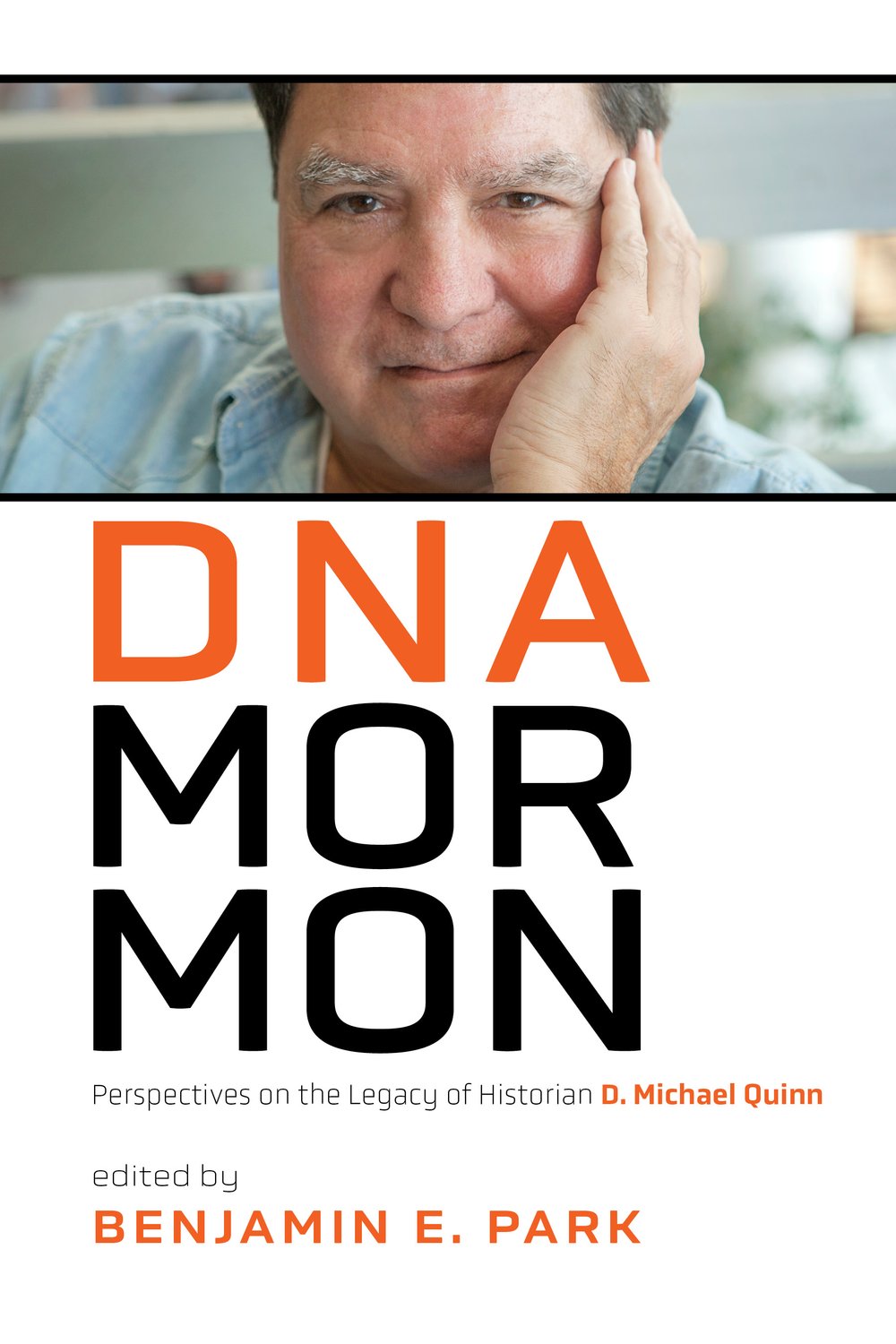
Review
———
Title: DNA Mormon: Perspectives on the Legacy of Historian D. Michael Quinn
Editor: Benjamin E. Park
Publisher: Signature Books
Genre: Religious Non-Fiction
Year Published: 2022
Number of Pages: 163
Binding: Paperback
ISBN: 978-1560854630
Price: $18.95
Reviewed by Conor Hilton for the Association for Mormon Letters
DNA Mormon: Perspectives on the Legacy of Historian D. Michael Quinn is a collection of essays, initially delivered as papers at a conference to honor D. Michael Quinn and think about his legacy. The essays here maintain the lively, conversational tone that conference papers often have, along with some of the tendencies of such papers to feel as though they are just the beginning of a conversation on these topics rather than the final word.
The book is at times difficult to read, generally not because of the prose or language but because it’s filled with efforts to grapple with the pain and suffering tied to Quinn’s biography. I couldn’t help but long for the world and the church that embraced Quinn and his, to my eyes, faith-filled quest for truth, aching at the loss our community experienced and continues to experience by not allowing him to fully belong and be one of us.
The essays here are generally quite readable and accessible to a wide audience, giving an overview of Quinn as a scholar and a human being. The essays are at their best when they reflect the intellectual connection between Quinn and the writer, as well as giving us some sense of who Quinn was. Maxine Hanks’ “Michael Quinn as a Dissenter in Mormon History” is a particular standout in this regard, incorporating thoughtful reflections on Quinn’s scholarship and life, tied to the friendship, parallel paths, and ultimately divergences between their lives.
I couldn’t help but periodically want a collection that was a bit more rigorous, something closer to the final word on the topics at hand, rather than a thoughtful and at times provocative conversation starter. That is, I wanted these essays to be something different than they were. That said, the collection is valuable for the way that its accessibility and conversational approach allows it to introduce new people to the variety of ways that we can and should continue to think about D. Michael Quinn.
I loved the way that DNA Mormon uses footnotes throughout as a typographical nod to Quinn and Quinn’s work. Like most essay collections, not every essay here was equally compelling to me, but there were several standouts—the aforementioned Hanks’ piece, Cristina Rosetti’s “Discovering the ‘End’ of Polygamy”, Patrick Mason & Hovan Lawton’s “An Unlikely Conservative”, Sujey Vega’s “Michael Peña Quinn” and Brianna Bratsman’s “The Perils of Social Change and Strategic Meltdowns at the Mormon Flagship University, 2007-2021”.
If you want an introduction to a wide variety of approaches to thinking about D. Michael Quinn and his legacy, this collection is a valuable place to start. I hope to see more scholars pick up the work that begins here and run with it to new heights. May we work to welcome those that continue, build upon, challenge, and improve the work of D. Michael Quinn with open arms.
